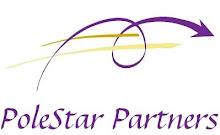The "Kindle Revolution" story today on Slate's Big Money says that "publishers have been ferocious in defending the fixed royalty", which is the percentage of retail price typically paid to authors. Many agents have tried to get back-end deals for their authors, whereby a larger percentage of the "net profits" would go to authors. The publishers don't want to risk a potentially huge "net" payout on a blockbuster title, and they'd rather pay authors huge advances against the royalty.
This is the flip-side of the movie business, where the studios desperately want to eliminate "gross" deals for stars and move the talent to a "partner" level where they would share in the "net". Movie talent much prefers the "gross" deals, typically not trusting the studios to fairly define the breakeven point for "net" deals". (as I've discussed earlier)
The article in Big Money also says with regard to the large advances, "Since no one really knows which books will succeed or why, this is actually a strangely rational system, even if it has created a terrible overhang of unearned advances." [my emphasis]
In fact, there is nothing "terrible" about an unearned advance. A book can be profitable to a publisher, even if the advance is not yet earned out; or a book could have earned out its advance, yet still show a loss for the publisher. There is no direct correlation between "profits" and earned/unearned advances.
The same situation exists in movies, wherein a star may not have earned out her huge advance, but the movie may show a "profit" for the studio. Or, a star may have earned back her advance and be receiving overages, yet the movie is a real "loss" for the studio.
skip to main |
skip to sidebar
Musings about the money behind-the-scenes
Copyright © 2009 PoleStar Partners
